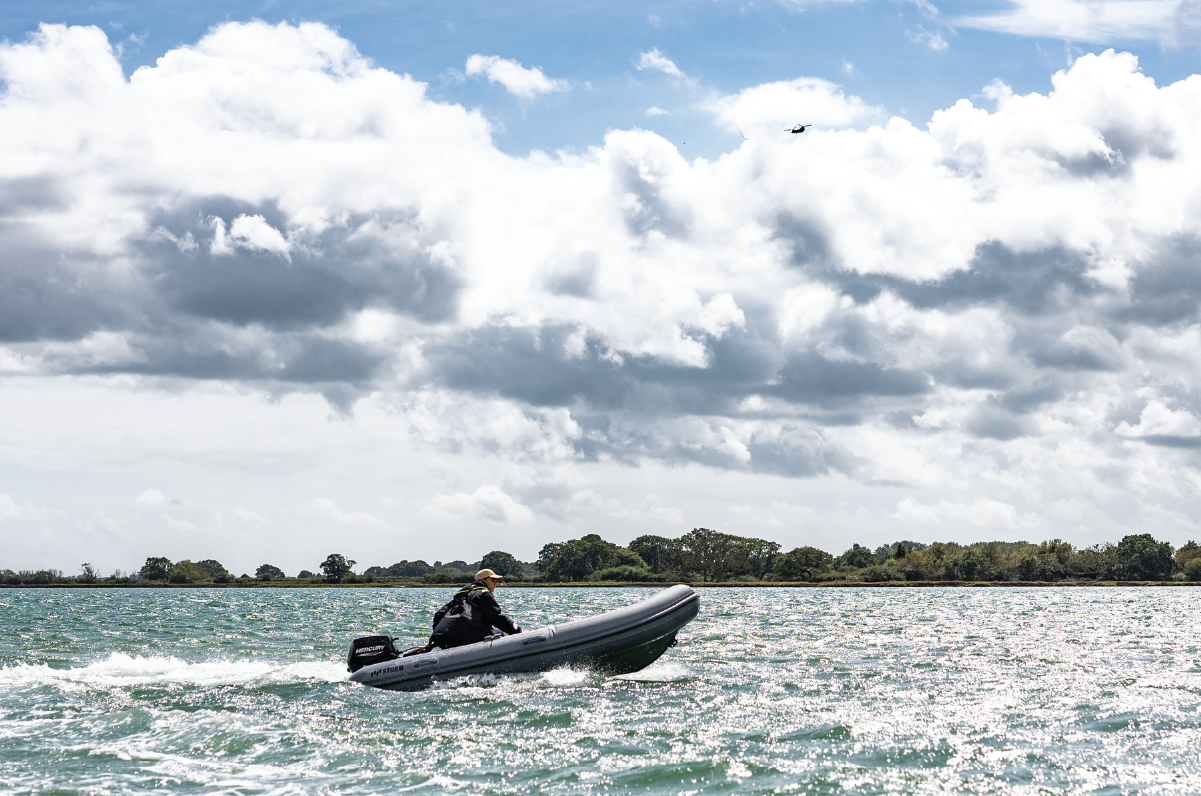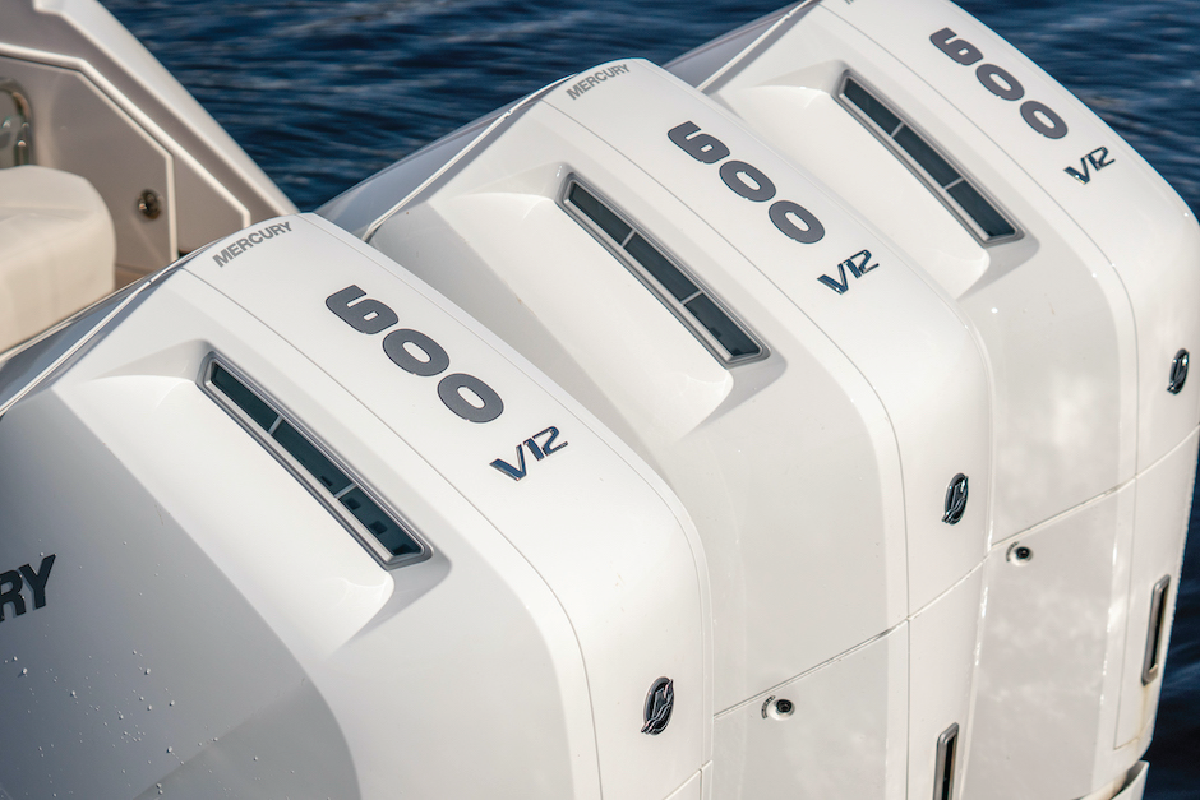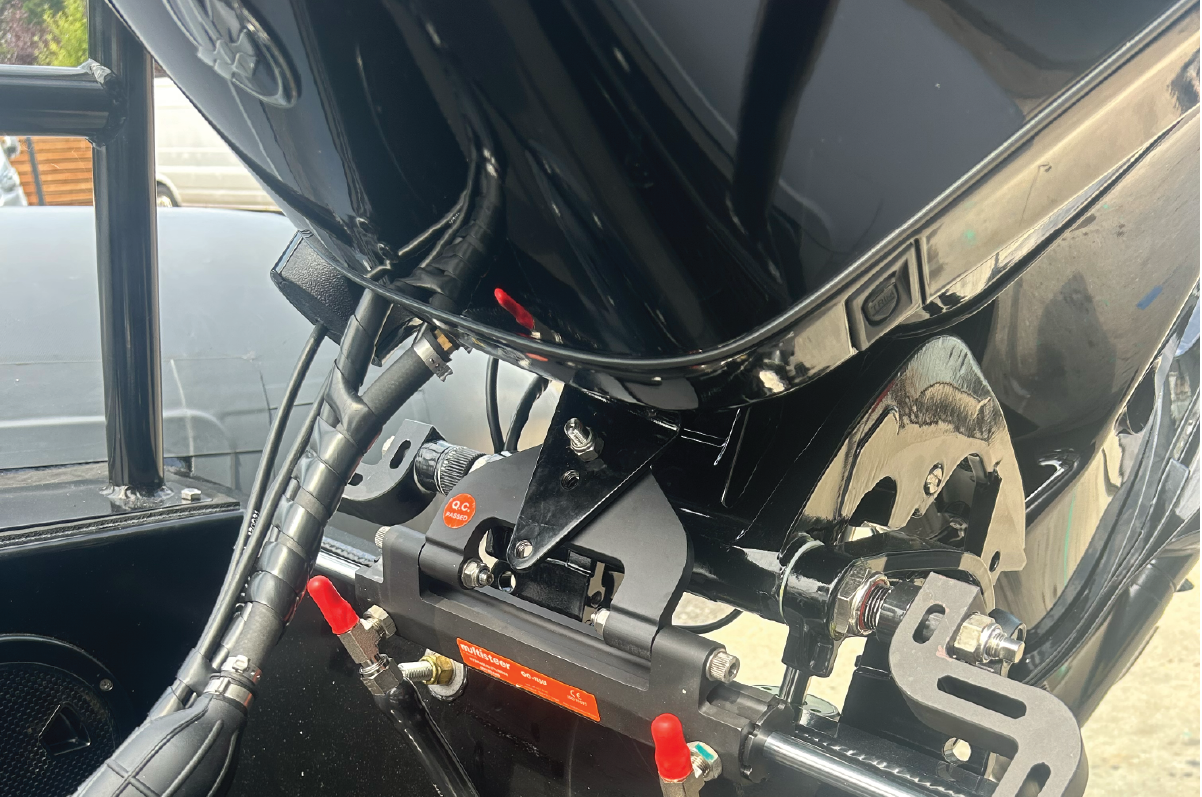
What is a RIB Boat?
What is a RIB Boat? And why are they so popular?
Rigid Inflatable Boats (RIBs) have become a popular choice for various marine applications, ranging from recreational boating and rescue operations to military and commercial use. Combining the benefits of traditional hard-hulled boats with the added stability and buoyancy of inflatable tubes, RIBs offer a unique and versatile platform that excels in many areas. This article explores what a RIB is and the numerous advantages of RIB boats, highlighting why they are favoured by boaters, professionals, and organisations worldwide.
Unmatched Stability and Buoyancy
One of the most significant advantages of RIBs is their exceptional stability and buoyancy. The inflatable tubes, or sponsons, surrounding the rigid hull provide additional flotation, making these boats incredibly stable even in rough seas. This design minimizes the risk of capsizing and ensures a smoother, safer ride. The high buoyancy also allows RIBs to carry heavier loads without compromising performance, making them suitable for various applications, including transporting equipment, personnel, or passengers.
Durability and Ruggedness
RIBs are renowned for their durability and ruggedness. The rigid hull, typically made from materials like aluminum or composites, offers excellent strength and impact resistance. The inflatable tubes are constructed from tough, puncture-resistant materials such as Hypalon or PVC, which can withstand harsh marine environments and rough handling. This combination of robust construction and high-quality materials ensures that RIBs can endure demanding conditions and prolonged use, making them a reliable choice for professional and recreational boaters alike.
Versatility in Applications
The versatility of RIBs is another key advantage, making them suitable for a wide range of applications. They are commonly used in search and rescue operations due to their stability, speed, and ability to operate in challenging conditions. Law enforcement and military agencies also favor RIBs for patrol, surveillance, and interdiction missions because of their durability and maneuverability.
In the commercial sector, RIBs are used for passenger transport, diving expeditions, and eco-tours, offering a safe and comfortable ride for passengers. Recreational boaters appreciate RIBs for activities such as fishing, water sports, and cruising, enjoying the versatility and performance these boats provide.
High Performance and Speed
RIBs are designed for high performance and speed, making them ideal for various marine activities. The combination of a lightweight yet strong hull and powerful outboard engines allows RIBs to achieve impressive speeds while maintaining excellent fuel efficiency. This high performance is particularly beneficial for rescue operations, military missions, and any situation where speed and agility are critical.
The rigid hull provides a smooth ride, cutting through waves efficiently and reducing the impact of rough waters. This capability not only enhances passenger comfort but also ensures that RIBs can operate effectively in diverse marine conditions, from calm lakes to turbulent seas.
Easy Handling and Maneuverability
The design of RIBs offers excellent handling and maneuverability, making them easy to operate even in tight spaces or challenging conditions. The combination of a deep-V hull and inflatable tubes provides superior grip on the water, allowing for precise control and sharp turns. This maneuverability is particularly valuable in search and rescue operations, where navigating through debris or around obstacles quickly and safely is essential.
Additionally, the lightweight nature of RIBs makes them easier to launch, retrieve, and transport compared to traditional hard-hulled boats. This ease of handling is a significant advantage for recreational boaters who may need to trailer their boat to different locations or store it out of season.
Safety Features
Safety is a paramount concern for any boat, and RIBs excel in this area. The inflatable tubes provide a high degree of buoyancy, ensuring that the boat remains afloat even if part of the hull is compromised. This feature is crucial in emergency situations, providing added peace of mind for operators and passengers.
The stability of RIBs also contributes to their safety, reducing the likelihood of capsizing or tipping over. Many RIBs are designed with multiple air chambers in the inflatable tubes, so even if one chamber is punctured, the others remain inflated, maintaining the boat’s buoyancy and stability.
Comfort and Customisation
Modern RIBs are designed with passenger comfort in mind, offering a range of seating options, storage compartments, and amenities. Whether equipped with jockey seats for high-speed performance or bench seats for leisurely cruises, RIBs can be customized to meet the specific needs of their users. Some models feature cabins, sunshades, and even toilet facilities, enhancing the overall comfort and usability of the boat.
The versatility in design and customization allows RIB owners to tailor their boats to their specific activities, whether for fishing, diving, or family outings. This flexibility makes RIBs a popular choice among a wide range of boaters.
Low Maintenance Requirements
RIBs are relatively low-maintenance compared to traditional hard-hulled boats. The materials used in their construction, such as Hypalon or PVC for the tubes and fiberglass or aluminum for the hull, are resistant to corrosion and damage. This durability reduces the frequency and cost of repairs, making RIBs a cost-effective option over the long term.
Routine maintenance tasks, such as cleaning the tubes and hull, checking for punctures, and servicing the engine, are straightforward and can often be performed by the owner. The ease of maintenance ensures that RIBs remain in good condition and ready for use with minimal effort.
Environmental Considerations
RIBs are also considered to be more environmentally friendly than some other types of boats. Their lightweight design and efficient engines result in lower fuel consumption and reduced emissions. Additionally, the materials used in modern RIB construction are often more sustainable and have a lower environmental impact compared to traditional boat-building materials.
For eco-tour operators and environmentally conscious boaters, RIBs offer a way to enjoy marine activities while minimising their ecological footprint.
Conclusion
Rigid Inflatable Boats (RIBs) offer a unique combination of stability, durability, versatility, and performance that makes them an excellent choice for a wide range of marine applications. Their ability to operate safely and efficiently in diverse conditions, coupled with low maintenance requirements and customisation options, ensures that RIBs can meet the needs of both professional and recreational boaters.
Whether used for high-speed rescue missions, leisurely cruises, or commercial operations, the advantages of RIBs make them a preferred option in the boating community. Their robust construction, ease of handling, and safety features provide a reliable and enjoyable boating experience, highlighting why RIBs continue to be a popular and trusted choice on the water.



